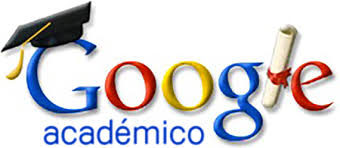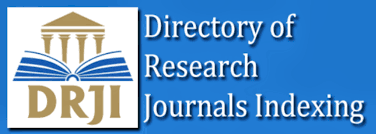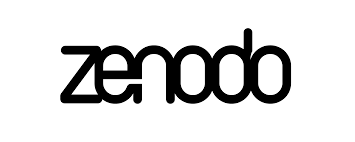Prospective analysis of the introduction of philosophy in the curriculum of pre-escplar education, primary education and I cycle of secondary education
Keywords:
Philosophy for Children, Cognitive abilities, Philosophical thoughtAbstract
This article makes an approach around relevance, on limits and possibilities of Philosophy as a space for reflection in Preschool Education and Primary Education, as transversal themes, from philosophical novels and in the 1st Cycle of General Secondary Education, as an independent discipline the title of example Education for Citizenship. For data collection, the research was based on two criteria; first from studies made by philosophers and educators such as Lipman, Sharp, Scolnicov, which support the entire course of the research and second, through the fact sheets of inquiry to the informants, that through questionnaires and ethnographic observation it was possible to problematize the results. The issues that are problematised here will be noticeable if the insertion proposal is a fact. In this understanding, the article has as its design, to provide children and adolescents with an educational space, reflective that propitiates the evolution of cognitive abilities, which leads them to think in a free and critical way, being one of the particularities of philosophical thought. Accordingly and based on the results obtained, it allowed us to conclude that: the student learns to reflect on the teaching subject, so that when he reads the texts, he will know how to interpret them; the student when questioning what he/she experiences inside and outside the classroom should know how to find answers to the problems raised by him/ her, even if they are not finished; the student should know how to produce a discussion with questions resulting from a logical thought.
References
Angrosino, M. (2009). Etnografia e observação participante. Porto Alegre: Artmed.
Cardoso, A. L. (2011). Educação para o Pensar: O lugar do diálogo na teoria e na prática Lipmaniana. Minas Gerais: São João Del-Rei.
Comissão de Acompanhamento e Avaliação da Reforma Educativa. (2014). Relatório da Avaliação Global da Reforma Educativa. Luanda: Editora Moderna.
Da Silva, A. A. (2017). As Metodologias em Educação. Unidade curricular de Metodologias de Investigação em Educação. Mestrado em Ciências de Educação: ISCED-Luanda
Da Silva, J. E. F. & Velasco, P.D.N. (2020). Competências e habilidades para a Filosofia na escola: correlações entre os Parâmetros Curriculares Nacionais para o Ensino Médio e a proposta lipmaniana de Filosofia para Crianças. Santa Maria: REFilo. Revista Digital de Ensino de Filosofia. periodicos.ufsm.br/refilo.
Da Silva, L. I. (coord.). (2016), Orientações Curriculares para a Educação Pré-Escolar: secção 3 Área do Conhecimento do Mundo OCEP. Editor: Ministério da Educação/Direção-Geral da Educação (DGE). Liliana Marques; Lourdes Mata; Manuela Rosa Áreas de Conteúdo https://www.dge.mec.pt/ocepe/node/51
Dinis, C. M. S. J. (2011). O Que é a Filosofia para Crianças: Programa de Matthew Lipman.PDF Dissertação para obtenção do Grau de Mestre em Filosofia-Ética e Política (2º ciclo de estudos). https://ubibliorum.ubi.pt/bitstream/10400.6/1319/1/
Durkheim, É. (2007). As regras do método sociológico. Martins fontes. Publicado por: Bianca Wildhttps://meuartigo.brasilescola.uol.com.br/sociologia/o-metodo.
Incontri, D. P. e Bigheto, A. C. (2001). Filosofia e Ética para Criança uma proposta Interdisciplinar. Videtur, Porto/São Paulo, Universidade do Porto/USP, V. 15.
Kohan, W. O. (2000). Filosofia e Infância, possibilidades de um encontro. V. 3. Edição Português. https://www.amazon.com.br/Filosofia-Infancia-Possibilidades-Um.
_____ (2005). Infância. Entre Educação e Filosofia. Belo Horizonte: Autêntica
Mendonça, D. (2008). portaldacrianca.com.pt/artigosa.php?id=71Portal da Criança - Artigos - 71 A Filosofia para Crianças - ...visa desenvolver as capacidades de raciocínio e do pensamento...04/12/2018
Menezes, P. (2021). O Que é Ciência? Disponível em: www.todamateria.com.br/o-que-e-ciencia/. Portal toda matéria.
Mondim, B. (2003). Curso de Filosofia. Os filosófos do ocidente, vol. 3 Paulus: São Paulo.
Oliveira, M. T. (1991). Didáctica de Biologia. Universidade aberta. Linguagem e aprendizagem.
Pacheco, J. A. & Flores, A. F. (1999). Formação e Avaliação de Professores. Porto: Porto Editora.
Pedroso, A. M. M. & Malacarne, V. (2008). Filosofia para crianças: uma experiência no ensino fundamental público. https://conhecerepensar.wordpress.com/2019/03/04/filosofia-para.
Rodrigues, A. S. (2013). Filosofia para crianças. Artigo; Crianças a fazer filosofia. Mais do que possível, é recomendável e até imprescindível. Objetivo: formar futuros cidadãos com pensamentos autónomo e consciência social. curiosaidade.pt/filosofia-para-criancas-curiosa-idade/
Sharp, A. M. & De Moura, Z. C. (1988). Excerto da entrevista 13 de Janeiro. Mendham, U.S.A.: International Conference in Philosophy for Children.
Sousa, J. R. da S. (2019). Estudo sobre a relevância da imaginação e da criatividade na Filosofia para Crianças. Trabalho para dissertação de Mestrado. Ponta Delgada: Universidade dos Açores. https://1library.org/article/a-comunidade-de-investigação-filosófica-cif.ynlw501q.
Vosniadou, S. (2001). Como aprendem as crianças. UNESCO: Série Práticas Educativas. Academia Internacional De Educação.
Zabalza, M. (2001). Didáctica da Educação Infantil. Rio Tinto: Edições ASA.
Downloads
Published
How to Cite
Issue
Section
License
Copyright (c) 2023 Joaquim Edgar de Jesus Manuel

This work is licensed under a Creative Commons Attribution-NonCommercial-ShareAlike 4.0 International License.















